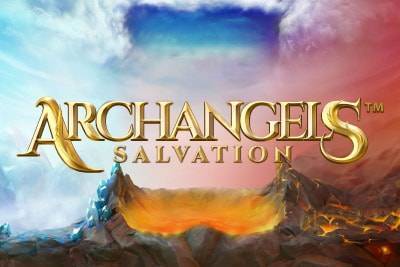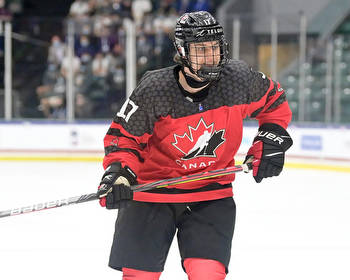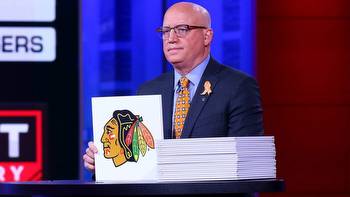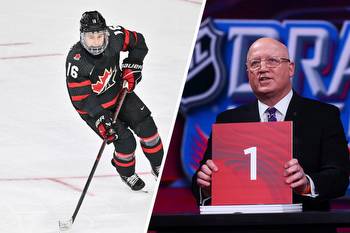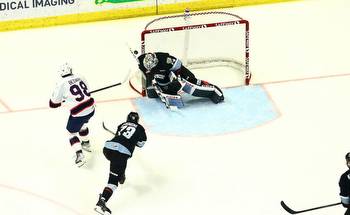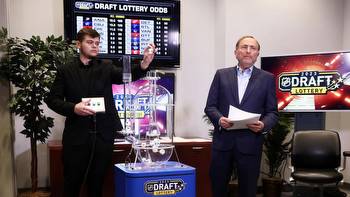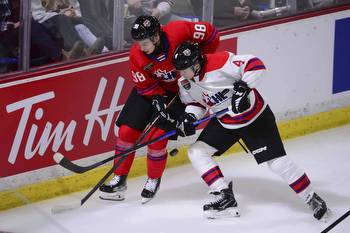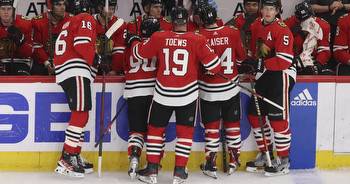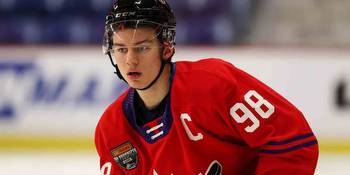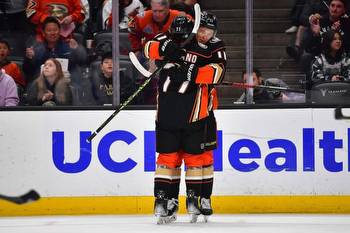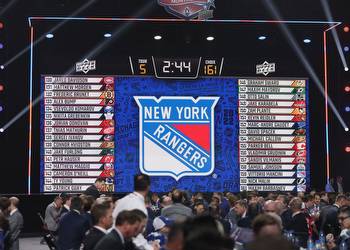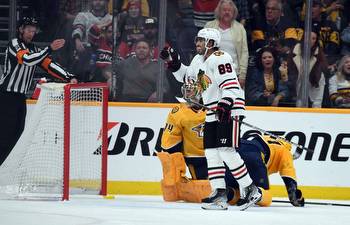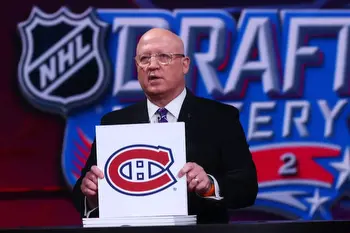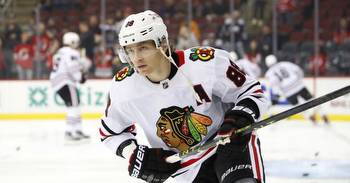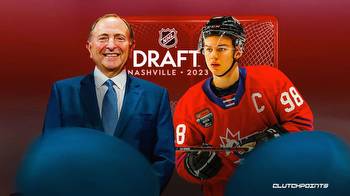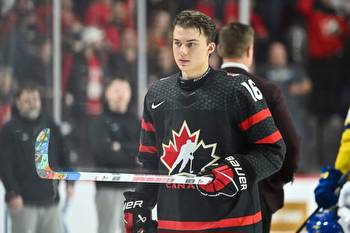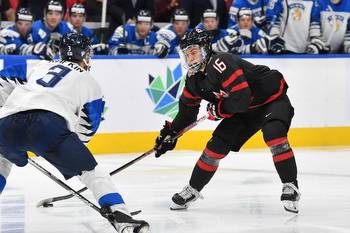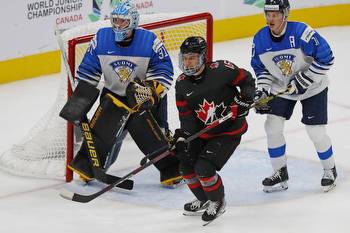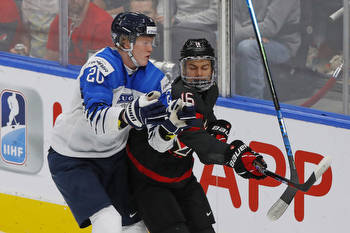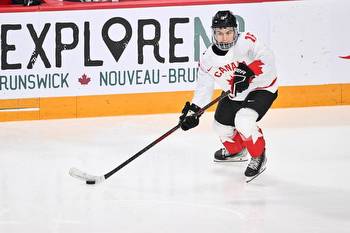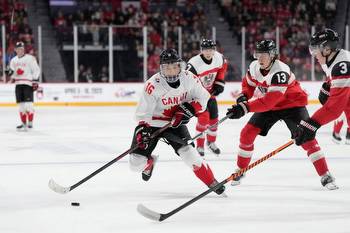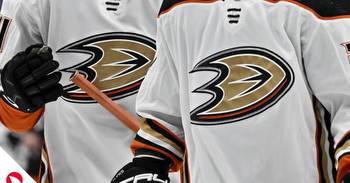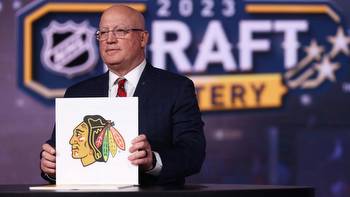Lazerus: NHL needs to even the odds for draft lottery to further disincentivize tanking
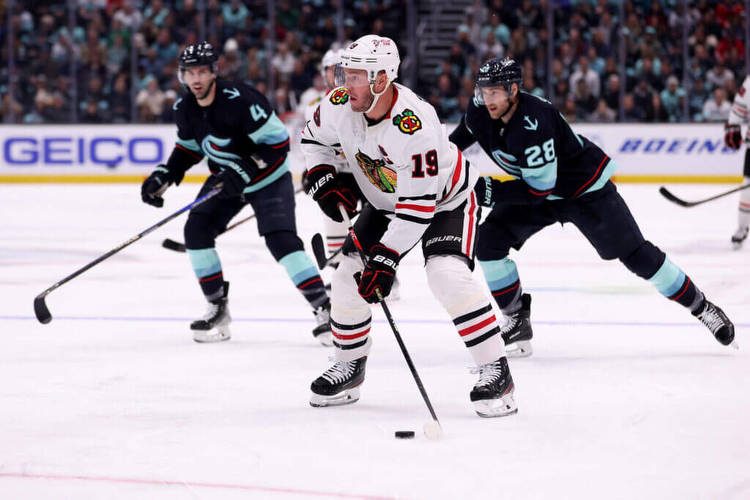
SEATTLE — Five days ago, these patchwork Chicago Blackhawks, with a roster full of rookies and stopgaps and journeymen and expiring contracts, marched into a hostile Saddledome and somehow defeated a desperate Calgary Flames team with so much more talent and so much more to play for.
It’s everything we love about sports — the scrappy underdog outworking its opponent and pulling out an unlikely victory on sheer guts and guile. It was good stuff, an evening of fun and success at the tail end of a season with so little of both.
And how did Blackhawks fans respond?
Noooooooooo!
On Saturday night, those same Blackhawks had a goal overturned on an offside challenge, a nifty Jujhar Khaira tally that would have brought them within one of the Seattle Kraken in a wild, high-scoring, back-and-forth affair.
And how did Blackhawks fans respond?
Pheeeeeeeeew!
Tanking sucks. Everything about it. The message it sends to players. The message it sends to fans. The naked cynicism of it. You know this, even if you agree with the method. I’ve written it to death. But over the past month or so — as the race to the bottom really came into focus and every loser point felt like the difference between getting Connor Bedard and not getting Connor Bedard — the reality of tanking has really hit home. It doesn’t just fly in the face of everything we’re supposed to love about sports and competition.
It pits fans against their own team.
And that’s no fun for anyone, even when everyone gets it.
“It is a weird system,” Blackhawks forward Jason Dickinson said. “Right now, in this moment, they’re rooting against us. But in the bigger picture, they’re rooting for you, because it’s going to build your team to be better. So in this moment, for the people that are here right now, yes, they’re rooting against us. But as an organization as a whole, it’s all big picture and how things are going to pan out in the future. Because obviously this isn’t the year to win a Stanley Cup. You’re building for the future. So the fan base recognizes that, and the players that are here today have to recognize and appreciate where the fans are at.”
It’s worth noting that Dickinson let out a long sigh before giving that thoughtful, eloquent response. Few things make NHL players and coaches more uncomfortable than talking about tanking. It’s anathema to everything they believe and everything they do. The word implies so many negative things — that their general manager acquired them because they’re bad players, that losing is not only acceptable but preferable, that some teenager is coming to take their job, that they’re just roster fillers with no future in the organization.
You (and Blackhawks management) might be rooting for losses and ping-pong balls. But the Blackhawks, many of them fringe NHLers with everything to prove, are playing for their careers and their livelihoods. So if you’re rooting for them to fail, well, they’re hoping to ruin your night.
“I don’t really pay attention to that,” coach Luke Richardson said about the fans rooting against the team. “I said from Day 1, we’re here to win every game. Obviously, we’re not in a position to make the playoffs, but we still want to finish out the season on a good note. Mailing it in at the end of the year when it doesn’t matter, that takes away from what we’ve built here this year. That’s just as important as anything that comes in the future. We can’t control whether we finish in last or second-last or third-last. It’s still a lottery, so there’s no 100 percent guarantee.”
Just how little do players care about this stuff? Dickinson acknowledged that yes, “it’s nice to get a high pick in the draft,” but then said that it’s been six straight years that the dead-last team didn’t get the first pick. Not even close. In fact, the last two No. 1 picks — and three of the last five — went to the team with the best odds. There was a four-year stretch from 2012-2015 and a five-year stretch from 2000-2004 in which the worst team failed to get the top pick, but nine of the last 17 lotteries — more than half — ended up with the last-place team getting the No. 1 pick.
Jonathan Toews — the No. 3 pick in the 2006 draft — simply shrugged when asked about the lottery system, merely noting that a lot of teams never seem to climb out of the hole they’re in, no matter how many high draft picks they get.
Oh, and he didn’t like it when the Oilers had the top pick four times in a six-year span, including three in a row.
“That was starting to get on my nerves,” Toews said.
One of those picks was Connor McDavid. Another was Nail Yakupov. So no, there is no guarantee. No guarantee you’ll get the No. 1 pick, and no guarantee you’ll hit with the No. 1 pick. But it sure helps. And Bedard sure seems like a sure thing. And under the current system, a 32nd-place finish guarantees a top-three pick, which is critical with this year’s extraordinary top of the draft. So there’s a reason Blackhawks fans — and Ducks fans and Blue Jackets fans — are rooting so vehemently against their favorite teams. There’s a reason The Athletic is running a daily recap of the tank race.
But at the risk of sounding like an infomercial, there’s got to be a better way. A way to better disincentivize pure tanking. A way for players to salvage some dignity. A way to allow fans to enjoy a rare victory in a moribund campaign. The Gold Plan — in which teams start accumulating points once they’re eliminated from playoff contention, meaning winning down the stretch is a good thing — is my favorite, but the league would never go for it. Our Sean McIndoe this week that would link non-playoff teams’ draft fate to a playoff team’s postseason success, but it’s far too drastic for the stodgy NHL to ever accept, and the randomness of hockey would render it madness.
The lottery’s entire purpose, of course, is to disincentivize tanking. But contrary to commissioner Gary Bettman’s ludicrous protestations, it’s not working. So here’s my pitch, which is modest and simple and hardly novel: Just flatten the odds. Give, say, the five worst teams in the league the same odds to win the top pick. The difference between the Blackhawks, Ducks, Blue Jackets and Sharks this season is minuscule (not counting intent; to be fair, Columbus and Anaheim got here the honest way). They’re all comfortably in the bottom five. Only eight points separated the bottom-five teams last season. Most years, it’s been between eight and 12 points. And the occasional embarrassing anomalies such as the staggeringly awful 2019-20 Red Wings, 2016-17 Avalanche and 2013-14 Sabres shouldn’t be rewarded, anyway.
Will there be a Dallas Mavericks-type situation down the road some day, when a team scratches its best players to ensure a late loss to slip into the bottom five? Probably. There’s no perfect solution. This won’t solve everything. But it’ll help. It’ll lessen the impact of fluky upsets down the stretch, allow for teams to play their best young players without fear of being (gasp!) too competent, and give fans the breathing room to enjoy watching hockey in the final month of the season.
For fans, there’s nothing fun about rooting against your favorite team. And for players, there’s nothing fun about having your fans root against you. It’s a bad system, and we should keep tweaking it until we fix it.
Because this? Whatever these last couple of weeks have been for the Blackhawks, Ducks and Blue Jackets? This purgatorial malaise? This ain’t it.
“For us, we go out there, we play our hardest,” Dickinson said. “A lot of guys have a lot to prove. Personally, I try to win every game. I think that’s what’s important.”
It’s supposed to be. Let’s try to make it important again.
